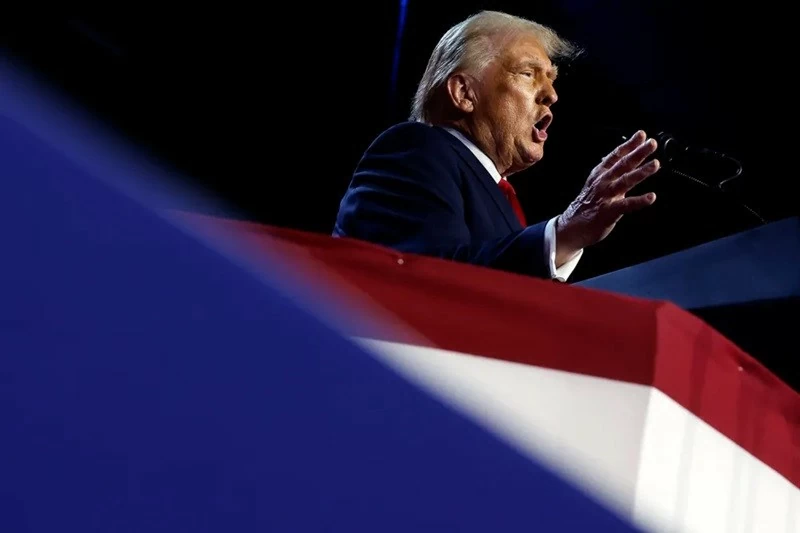 |
| Donald Trump speaks at an election night event in West Palm Beach, Florida, on November 6. (Source: Getty Image) |
The destination is peace agreement
Emma Ashford, a commentator at Foreign Policy and a senior fellow at the Stimson Center, said that if Washington puts pressure on Kiev and Ukrainian President Zelensky refuses to accept the peace deal, Zelensky could turn to Europe for support.
The most obvious change Mr Trump could make on foreign policy is on Ukraine. Republican support for spending more money to send weapons to Kiev has waned, and Mr Trump may follow through on his promise to seek a peace deal.
Expert Emma Ashford assesses the problem here is that the peace that Mr. Trump wants may come with terms that are not beneficial to Kiev.
Now, with Ukraine’s military losses mounting, Western arms stocks dwindling, and Ukraine’s own internal problems such as manpower and corruption growing, Mr Trump is tasked with finding a solution, even if Europe may object.
Kiev insists that any peace deal must include a security guarantee, ideally through NATO, while Russia opposes this. According to expert Emma Ashford, Mr Trump is in a good position to put pressure on Kiev, but that does not mean he can force Kiev to the negotiating table when they know the preconditions are difficult to meet. Kiev may choose to continue fighting and seek European support instead of the US.
The Trump administration would then have two options: either continue to support Ukraine, or step back and leave the matter to Washington's European allies.
During his campaign, Mr. Trump said he would “not give Ukraine a penny.” Part of his plan to end the conflict “in a day” is to strike a deal. But the prospects for such a deal are not easy. So in the next 75 days, Congress and the Biden administration face a historic and urgent task: helping Ukraine get as many weapons as possible before a new turning point.
Russian President Vladimir Putin congratulated Mr. Trump in a speech at the Valdai forum in Sochi, Russia (November 7), this is President Putin's first public comment since Mr. Trump's re-election.
The Russian leader said Mr Trump’s approach of “wanting to rebuild relations with Russia” and ending the conflict in Ukraine “deserves attention”. Mr Putin has expressed a desire to talk to Mr Trump, but said he does not necessarily know what will happen next.
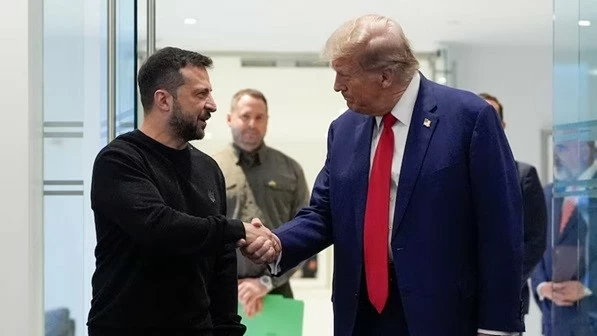 |
| Donald Trump meets with Ukrainian President Volodymyr Zelenskyy at Trump Tower in New York in September 2024. (Source: AP) |
Cautious optimism
Mr. Trump’s approach to Ukraine could also impact US relations with Europe, Amy Mackinnon, national security and intelligence correspondent at Foreign Policy, analyzed. When Mr Trump unexpectedly won his first term in 2016, European officials were stunned and rushed to address the implications for transatlantic relations. But this time there was no repeat of that scenario.
For months, European governments have been quietly drawing up contingency plans to increase the continent’s “self-sufficiency” and shield military aid to Ukraine from the fallout of US politics.
“This could mean that Europe finally realizes that it has to start taking care of itself,” said one European official.
Polish Foreign Minister Radoslaw Sikorski was cautious in his comments about the election. “The American people have voted and we respect their decision,” he said in a press conference on Wednesday morning. “Europe urgently needs to take more responsibility for its own security,” Sikorski stressed.
Amy Mackinnon questioned whether these European preparations were sufficient. Trump’s disregard for diplomatic norms and his personal relationship with Russian President Vladimir Putin have long raised concerns in Europe that he might force Ukraine into an unfavorable deal simply to end the conflict. Both Europe and Ukraine now take a “cautiously optimistic” approach to the Trump administration’s future policies.
Middle East – “Old Wine in New Bottles”?
On the Iran issue, Steven A. Cook, senior fellow for Middle East and Africa studies at the Council on Foreign Relations, said that Trump’s first-term Iran policy was not as tough as he often claimed. Although it was a “maximum pressure” policy, this strategy was somewhat similar to former President Barack Obama’s use of sanctions to bring Iran to the negotiating table and lead to the 2015 Iran nuclear deal – JCPOA.
Trump calling the deal “the worst deal ever” doesn’t mean he wants to pursue a different approach to Iran. What Trump wants is simply to negotiate a better deal with Iran, one that he believes is superior to Obama’s nuclear deal. Trump has been relatively dovish toward Iran throughout his first term.
In his new term, how will Mr. Trump deal with Iran? Mr. Steven A. Cook commented that Mr. Trump will likely continue to pursue the approach of his previous term to demonstrate his "master" talent in reaching international agreements.
Expert Steven A. Cook also believes that with a broader approach to the Middle East, the Trump administration’s policy may still be “old wine in new bottles,” with little change compared to the previous administration. Specifically, support for Israel will continue. Trump may continue his journey to normalize diplomatic relations between Israel and Saudi Arabia.
In addition, Mr. Trump will spare no effort to achieve a ceasefire in Gaza. In a phone call before the election, Mr. Trump asked Israeli Prime Minister Benjamin Netanyahu to end major military operations in Gaza “before Inauguration Day.”
Source: https://baoquocte.vn/mo-bong-bong-ca-moi-lan-cu-ong-trump-se-go-the-nao-292914.html


![[Photo] President Luong Cuong presents the 40-year Party membership badge to Chief of the Office of the President Le Khanh Hai](https://vphoto.vietnam.vn/thumb/1200x675/vietnam/resource/IMAGE/2025/5/19/a22bc55dd7bf4a2ab7e3958d32282c15)
![[Photo] Panorama of the Opening Ceremony of the 43rd Nhan Dan Newspaper National Table Tennis Championship](https://vphoto.vietnam.vn/thumb/1200x675/vietnam/resource/IMAGE/2025/5/19/5e22950340b941309280448198bcf1d9)
![[Photo] General Secretary To Lam attends the conference to review 10 years of implementing Directive No. 05 of the Politburo and evaluate the results of implementing Regulation No. 09 of the Central Public Security Party Committee.](https://vphoto.vietnam.vn/thumb/1200x675/vietnam/resource/IMAGE/2025/5/19/2f44458c655a4403acd7929dbbfa5039)

![[Photo] Close-up of Tang Long Bridge, Thu Duc City after repairing rutting](https://vphoto.vietnam.vn/thumb/1200x675/vietnam/resource/IMAGE/2025/5/19/086736d9d11f43198f5bd8d78df9bd41)





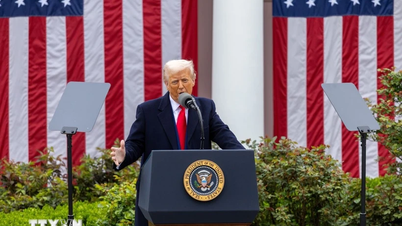

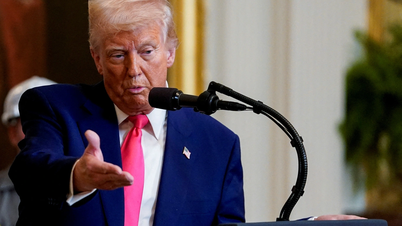



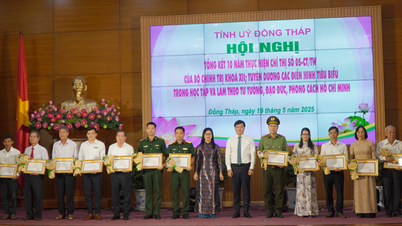













![[Photo] Prime Minister Pham Minh Chinh inspects the progress of the National Exhibition and Fair Center project](https://vphoto.vietnam.vn/thumb/1200x675/vietnam/resource/IMAGE/2025/5/19/35189ac8807140d897ad2b7d2583fbae)
















































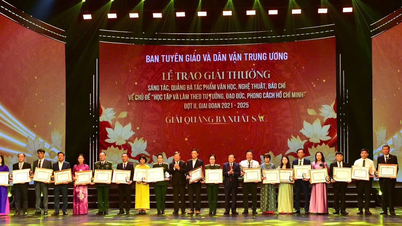







![[VIDEO] - Enhancing the value of Quang Nam OCOP products through trade connections](https://vphoto.vietnam.vn/thumb/402x226/vietnam/resource/IMAGE/2025/5/17/5be5b5fff1f14914986fad159097a677)



Comment (0)